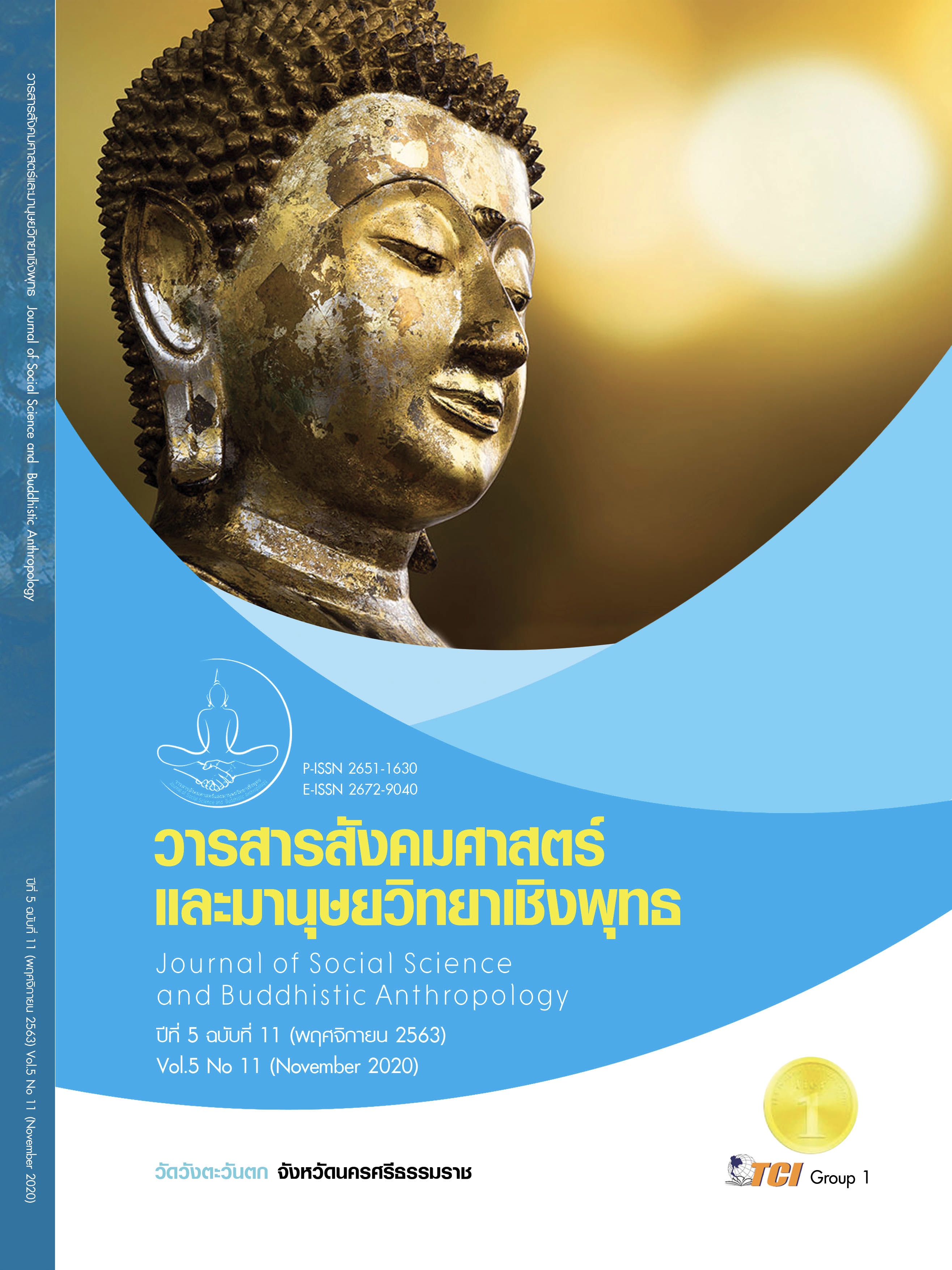PROACTIVE GUIDANCE SERVICE MANAGEMENT MODEL FOR PRIVATE SECONDARY SCHOOL
Keywords:
Proactive Guidance, Private School, Secondary SchoolAbstract
The objectives of this research article were to: 1) study of current conditions. 2) develop a model. 3) evaluate model the proactive guidance service model. Research and development methods we are used by the following research research methods: studying concepts, Theories and Questionnaires on the current condition of the samples. Inclouding offices of the private education commission in the school The research population is schools in the Eastern Economic Corridor Chonburi Province. Specific sample group used a total of 47 Schools; divided by 3 small schools, 2 medium schools, 2 large schools as required total 7 Schools. And specific interviews for proactive guidance of 5 School. Research tool’s questionnaire. Have 5 experts to do a questionnaire and check it accuracy. They are doing a questionnaire and checked for accuracy. Research tool’s a structured interview for purposive sampling interviews with experts. The result of research shown that and group chat by analyzing the content and checking for validity and confidence at the .05 The research results ware found that 1) was study the current state proactive guidance service management model for private school province 5 services is Inventory Service, Information Service, Counseling Service, Placement Service, Follow-up Service. Phase 2 to develop a model consisting of 3 activities consists of preparing a proactive guidance manual consulting practice guidance of a guidance teacher follow-up and reflection to teachers and students. Phase 3 Evaluation of the developed proactive guidance service model. It was found that all 4 activities were beneficial to the implementation and that the suitability and feasibility were at the highest level.
References
กระทรวงศึกษาธิการ สำนักงานเลขาธิการสภาการศึกษา. (2560). แผนการศึกษาแห่งชาติ พ.ศ. 2560 - 2579. เรียกใช้เมื่อ 5 มิถุนายน 2563 จาก https://www.moe.go.th//แผนการศึกษาแห่งชาติ-พ-ศ-2560
น้ำลิน เทียมแก้ว และรุ่งเรือง สิทธิจันทร์. (2557). ศึกษาการพัฒนารูปแบบการบริการสารสนเทศเชิงรุกฉับไวทันใจผู้ใช้บริการ. PULINET Journal, 1(3), 37-43.
ปัญญา ธีระวิทยเลิศ. (2558). การพัฒนาคู่มือแนวทางการสร้างเครื่องมือการวัดผลประเมินผลที่สอดคล้องกับกรอบมาตรฐานคุณวุฒิระดับอุดมศึกษาแห่งชาติสำหรับพนักงานมหาวิทยาลัยสายวิชาการ. ใน รายงานการวิจัย. สถาบันวิจัยและพัฒนา มหาวิทยาลัยราชภัฎจันทรเกษม.
มนตรี อินตา และคณะ. (2561). การแนะแนวกับการส่งเสริมคุณภาพชีวิตของวัยรุ่น. วารสาร Veridian E-Journal, 11(2), 2513-2530.
วนัญญา แก้วแก้วปาน. (2563). การศึกษาการจัดบริการแนะแนวเพื่อพัฒนาผู้เรียนในศตวรรษที่ 21. นครปฐม: มหาวิทยาลัยศิลปากร.
สมเกียรติ เจษฎากุลทวี. (2563). ระบบการบริหารงานแนะแนวมุ่งอนาคตในสถานศึกษา สังกัดเขตพื้นที่การศึกษามัธยมศึกษา. วารสารสังคมศาสตร์และมานุษยวิทยาเชิงพุทธ, 5(2), 269-288.
สโรชา เสรีนนท์ชัย. (2560). พฤติกรรมและการยอมรับสื่อสังคมออนไลน์เพื่อการสื่อสารองค์กรของบุคลากรมหาวิทยาลัยมหิดล. วารสารนิเทศสยามปริทัศน์, 17(23), 137-147.
สุทัศน์ เดชกุญชร. (2561). รูปแบบการบริหารจัดการงานแนะแนวการศึกษาที่มีประสิทธิผล สำหรับสถานศึกษา. ใน ดุษฎีนิพนธ์ปรัชญาดุษฎีบัณฑิต สาขาวิชาการบริหารการศึกษา. มหาวิทยาลัยนอร์ทกรุงเทพ.
Jarmo R. Lehtinen. (2550). การบริการลูกค้าสัมพันธ์เชิงรุก (แปลและเรียบเรียงโดย ธีระศักดิ์ กำบรรณารักษ์). กรุงเทพมหานคร: สำนักพิมพ์มหาวิทยาลัยธรรมศาสตร์.
Krejcie, R. V. & Morgan, D. W. (1970). Determining Sample Size for Research Activities. Educational and Psychological Measurement, 30(3), 607-610.
Lehmanowsky, M. B. (1991). Guidance and counseling services: Perceived student needs. Retrieved June 12, 2020, from https://www.proquest.com/docview/303927331
Titichaya Noofoon. (2555). การบริการเชิงรุกของห้องสมุด. เรียกใช้เมื่อ 25 กันยายน 62 จาก http://530110279-proactive.blogspot.com/









